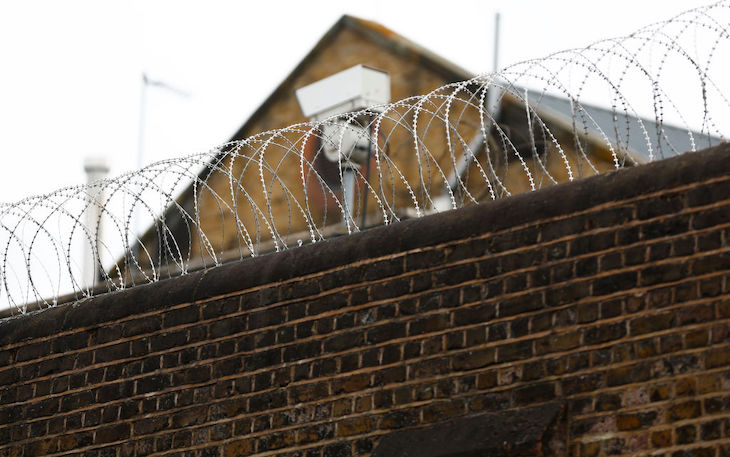Everyone knows that Britain’s jails are filthy, failing and dangerous. But there’s another less obvious problem with our prisons: those locked up can find it impossible to get anything done.
In prison, your ability to achieve the most basic of tasks done is almost entirely dependent on others. This means that if a prisoner needs to see a doctor, apply for a job, join a training or education program, or even get more loo roll, they need to contact someone who will solve the problem for them. When most prisoners are locked in their cells for 22 hours a day, this can prove very difficult.
No one wins when prisoners’ lives are made unnecessarily, and needlessly, hard
In many prisons, every significant request for help requires the inmate to fill in a physical form which is posted in a box or handed to an officer. Some more advanced jails, like HMP Wandsworth where I was a prisoner in 2020, have ‘kiosks’ on the wing landings. These are bulky blue touchscreen devices, on which inmates can place their canteen orders, top up their phone accounts and contact various departments in the prison. During my time at Wandsworth, I soon realised that each hour out of the cell was precious. By the time I’d showered, I’d need to choose whether to exercise outside in the yard, or spend my time trying to run a single errand by finding an officer who could help. This was often made harder by inconsistent and limited staffing. Indeed, I can remember occasions where I’d spend my whole hour trying to find soap or a similar essential.
My experience with fighting prison bureaucracy is common, according to Easier said than done: resolving prisoner requests, a report published by HM Inspector of Prisons.
‘Despite an expectation that prisoners sort out most of their…requests informally with officers on the wings…a shortage of available officers and too little time out of cell often limited these opportunities’, it says. Prison inspectors found that officers ‘often congregated in offices, rather than making themselves available on the landings.’ No wonder prisoners can spend their whole ‘free time’ trying, and failing, to track them down.
When I had a more significant issue to resolve, I’d have to complete a form, if one was available. As ‘Claire’, a former Wandsworth officer told me, ‘so much had to be done on paper forms that staff never had available to give people’. She also remarked that ‘it always caused problems that neither staff nor prisoners understood how anything is supposed to be done’. In fact, during my time in the prison system I often found that the best way to get something done was to find a helpful prisoner who understood the system.
What makes it even worse is that almost 60 per cent of prisoners have a reading age below that expected of an 11 year old. This means that they can struggle to understand and complete the paperwork jails provide them. This is particularly problematic if inmates are trying to describe a medical complaint in writing; often this is the only way of seeing a nurse, who might then decide to allow a doctor’s appointment.
Responses to such requests can be so slow that they might as well not have been completed at all. ‘Lisa’, an officer responsible for equalities within her jail, told me that discrimination reports were often responded to so late that prisoners had already been released or transferred. Even when a report was filed in time, the responses from senior staff were regularly brief and dismissive.
Things can be even more chaotic when a prisoner moves jails. A current inmate, ‘Billy’, has just been transferred from a ‘B Category’ to a ‘C Category’ prison. The prison service has lost most of his clothing and footwear. Billy is convinced that his property has been stolen by a prisoner working at the jail he’s just left. But there is essentially no mechanism for him to find or recover his property.
People might dismiss these issues as grumbling by those who’ve broken the law and don’t deserve an easy life. But no one wins when prisoners’ lives are made unnecessarily, and needlessly, hard. When this chaos in our jails affects matters like access to healthcare or education, then inmates’ chances of rehabilitation can be harmed. There’s a more insidious problem too: if you spend any amount of time in these chaotic jails where nothing works and most staff seem clueless, then you inevitably become deeply cynical about the system. Watch the way staff often break or ignore the laws which should govern our jails and you will realise that the people in power don’t care about the rules. In such a toxic culture, how can we expect inmates to end their sentences determined to be positive and rule-abiding members of society?







Comments